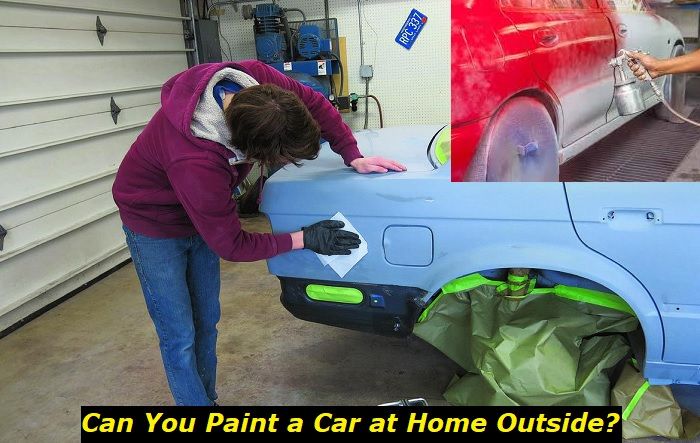The instrument cluster can tell you a lot about the status of your car. It provides you with information such as speed, temperature, mileage, engine speed, fuel level, and warnings that will help you adjust the way you operate and maintain your vehicle.
Dash electrical problems highlights
- Level of urgency:low
- DIY inspection:impossible
- DIY repair:impossible
- Can you drive?yes
- Price for repairs:$250 - $550
- Symptoms:glitchy dash, functions not working, no lights, no data
- Ways to solve:try disconnecting the battery for some time, take it to a professional
Things that Can Go Wrong
As for the underlying question in this article, the answer is yes. There are many ways that a bad instrument cluster can cause transmission problems in a car. The ones that will be discussed here are only some of the direct outcomes of this problem.
1. Creates Confusion for the Driver
First, if the instrument cluster is not working well in a manual transmission, it may not provide the driver with the correct information about the car's speed. This can lead to the driver shifting gears too early or too late, which can cause damage to the transmission.
A faulty instrument cluster can also cause problems with the car's shift indicator light. If this light is not working as it should, it may not tell the driver when it is time to shift gears. The incorrect timing of the transmission can similarly put a lot of pressure on its system.
2. Sends Inaccurate Info to the Gearbox
Likewise, a malfunctioning instrument cluster can send the wrong signals to the gearbox of an automatic transmission system. If it feeds inaccurate speed data in there, it may force the car to shift prematurely or with delay. The transmission will surely take a heavy toll in either of these settings if left unchecked.
Regardless if you are driving a manual or automatic, if the transmission shifts too early, it can cause the engine to labor and bog down. On the other hand, if the transmission shifts too late, it can make the engine rev too high before shifting. These can make the car jerk or lurch when shifting also.
Both instances can be hard on the engine and transmission, so these can result in increased wear and tear of their components. If the problem is severe enough, it can even damage the entire engine and/or transmission.
3. Failure to Enter into Other Gear Modes
In some cases, a defective instrument cluster can prevent the transmission from shifting into Park or neutral when the car is turned off. This can cause the transmission to stay in gear and grind when the car is restarted, which can ruin the transmission.
4. Causes Critical Errors that may Impede Car Performance
Furthermore, a problematic instrument cluster has a chance to trigger all sorts of warning lights or messages that will confuse your car's computer box. Some of them could be related to your engine or transmission, which may impede their proper operation.
Some critical errors in the instrument cluster on your dashboard may force your car to go into limp mode. When it does, the transmission will not be able to shift gears appropriately. This can be detrimental to the transmission components as well as the engine.
While the limp mode is typically directly caused by a problem with the transmission control module (TCM) or the transmission itself, if the TCM is fed with erroneous data by the defective instrument cluster, it can pressure the transmission to shift erratically or slip out of gear while the vehicle is running in the said state. This can lead to the overloading of the transmission components and eventual damage.
On the contrary, if the car is visibly having problems that may require it to limit its functions, including the way that the transmission operates, the failure of the instrument cluster to communicate both with the driver and the system about the issue can prevent them from acting or adjusting accordingly. Again, this can have dire repercussions.
The Most Common Causes of the Instrument Cluster Problem
Most of the instrument clusters can be due to the following factors:
1. Damaged Wiring
Bad wiring can cause a number of electrical issues in a vehicle, particularly in its instrument cluster. The effects of these can be made worse in cars that have already adopted a fully digital instrument cluster.
The usual suspects that may be hindering the flow of current in your wiring are corrosion, connection gaps, and damage.
To check for corrosion in wires, look for any green or white powdery substance on each line. If you see any of these signs, disconnect the contaminated wiring from the power source and clean it off with a wire brush or corrosion cleaning solution.
You can also use a visual check-up to detect loose connections. Look for any gaps between the wire and the connector. If there is a gap, try to tighten the connection. If you still see a gap after making the necessary adjustments, you may need to replace the connector.
Another way to assess the quality of your wiring to ensure that it is still effective in delivering power to the component where it is supposed to be connected is to test its continuity or resistance with the use of a voltmeter.
To do this, start by setting the voltmeter to the resistance setting. Then, touch one probe to each end of the wire. The voltmeter will show you the resistance of the wire. If the resistance is high, the wire may be damaged. If the resistance is low, the wire is still okay.
In most instances, replacing the wiring harness may be the most practical solution as it will save you from all the trouble brought about by cleaning the wiring and their corresponding connectors as well as buying a cleaning solution for them.
2. Grounding Problems
This technically falls into wiring problems, but we would just like to put more emphasis on this part due to its high likelihood of causing problems with your instrument cluster.
In addition to the car's instrument cluster not working correctly, some other things that can confirm a grounding problem in your car include a malfunctioning electrical system, hard starting, and stalling.
If you think you have a grounding problem, you should have the problem fixed right away. First, check all of the car's grounds and make sure they are clean and tight. If that doesn't fix the problem, you may need to get the ground wire or ground strap replaced.
3. Faulty Sensor
In most cases, a bad speedometer sensor may be the root of your instrument cluster problem. As mentioned earlier, incorrect speedometer readings can also influence the way that your transmission works.
To diagnose the problem, start by ensuring that the wiring and connection of the vehicle speed sensor (VSS) are in order. Following that, check the sensor for any signs of physical damage, including but not limited to corrosion, burns, and cracks. If it is displaying signs of heavy wear or damage, have it changed immediately.
4. Burnt Fuse
The fuse protects the circuity of your car from sudden electrical fluctuations that may damage its parts. If it's already burnt up, it can trigger all kinds of electrical issues in your car. Your instrument cluster can take a blow from this problem also.
Again, you can use a multimeter to evaluate the continuity of the fuse. Simply place the probes of the device against the two metal contacts that are located at each opposite end of the fuse.
Replace the fuse with a new one if the multimeter shows a very high resistance reading. Use only a replacement with the same level of amperage as the old fuse.
5. Software Issues
Errors in your instrument cluster may happen because of a software problem in your car's computer, too. If the problem is only limited to a glitch in its system, your technician will probably just reflash your PCM (powertrain control module) to fix the issue. This process entails reprogramming or updating its software to resolve some of the errors that your vehicle's computer may be prone to.
6. Bad Instrument Cluster
If the problem persists after trying everything here, then, you may already be looking at a problem with the instrument cluster itself. In this case, visit your car technician or mechanic to help you with its likely replacement.
Conclusion
When your car's transmission is not working properly due to a problem with your instrument cluster, there are some things that could happen. The most common outcome is a slipping transmission. It means that the system is not engaging properly or that the gears are not shifting correctly.
This can make the car either gradually or suddenly lose power and speed. Any of the two can be dangerous if it happens while you are driving on a busy road or at high speeds.
If the problem is not addressed immediately, it can bring in further damage to the transmission and may even result in a complete breakdown. In addition, if the transmission is not working properly, it can also cause the engine to overheat, which can lead to serious engine damage.
Safety should always be your number one priority when it comes to your car. If you think that there may be a problem with either your instrument cluster or transmission, it is important to have each of them checked out by a qualified mechanic as soon as possible. Ignoring the problem could result in serious consequences.
About the authors
The CarAraC research team is composed of seasoned auto mechanics and automotive industry professionals, including individuals with advanced degrees and certifications in their field. Our team members boast prestigious credentials, reflecting their extensive knowledge and skills. These qualifications include: IMI: Institute of the Motor Industry, ASE-Certified Master Automobile Technicians; Coventry University, Graduate of MA in Automotive Journalism; Politecnico di Torino, Italy, MS Automotive Engineering; Ss. Cyril and Methodius University in Skopje, Mechanical University in Skopje; TOC Automotive College; DHA Suffa University, Department of Mechanical Engineering






Add comment